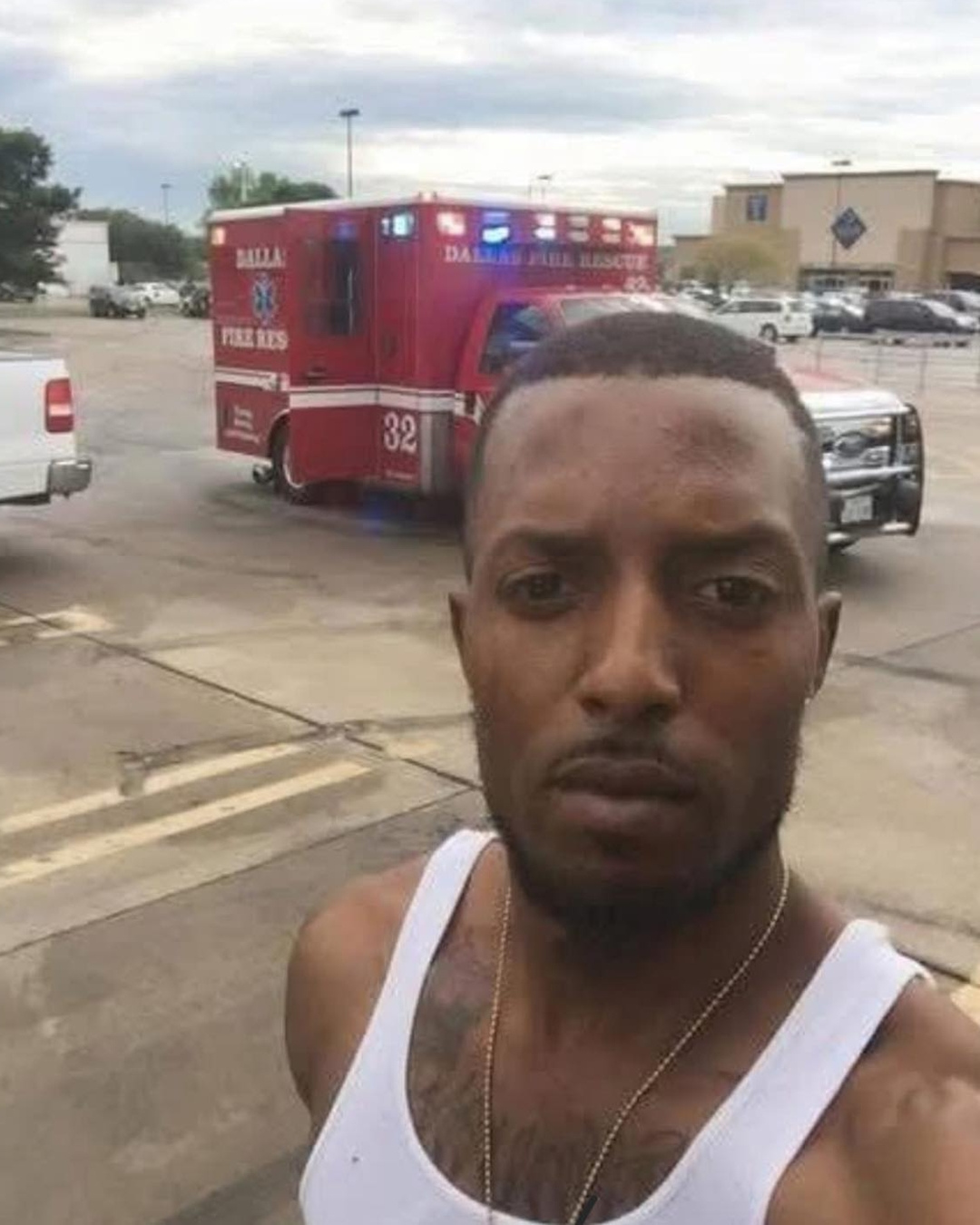It was just another rainy Tuesday, a day defined by a boring chore. I was on my way to pay a bill at a shopping center, my mind a million miles away. The rain was steady, and traffic was a nightmare. I slipped into the turning lane, one of many cars in a line, waiting for the light to change. That’s when I saw it—a white Chevy truck, completely still. This was the beginning of the most terrifying and profound medical emergency I would ever witness.
At first, I felt what everyone else felt: frustration. Horns blared. Drivers leaned out their windows, shouting, “Move! Get out of the way!” The line of cars grew, and impatient drivers started whipping around the truck, cutting into traffic. I tapped my steering wheel, muttering, “Come on, pal, pay attention.”
But he didn’t move. Five minutes passed. The light cycled, and the truck remained motionless.
As I finally made my turn into the lot, I got a clearer look at the driver. He was frozen, his eyes wide but completely unfocused. My irritation vanished, replaced by a cold knot in my stomach. He wasn’t on his phone. He wasn’t daydreaming. He wasn’t there.
I drove into the lot, heading for the speed bump, but I couldn’t shake the image. Something is wrong. A voice inside me whispered, Go back. Everyone else had kept driving. I could, too. But I didn’t. I turned my car around, parked it on the far side of the lot, and stepped out into the rain.
I walked to the curb, my heart pounding. Cars were still streaming past, splashing water, swerving around the stranded truck. I knew I had to get to him.
I raised my arm, waving, trying to stop the flow of traffic. Cars honked, swerving around me. I took another step, waving more frantically. Finally, one car stopped, then another, until a wall of vehicles gave me a path. I ran across four lanes and got to the driver’s window.
I leaned in. “Sir, can you hear me? Pull over if you can. Please talk to me.”
Nothing. His eyes were open, but he didn’t blink. He didn’t twitch. His window was halfway down, and the rain was dripping onto his shirt. But his clothes weren’t just damp from the rain; they were drenched. I realized with a shock that it was sweat. His entire body was slick with it, as if he’d just run a marathon. This was the first sign of a catastrophic internal event.
“I’m going to unlock your door,” I said, my voice shaking. “Please don’t hurt me.”
I reached into the half-open window, unlatched the door—and in that instant, his foot slipped off the brake. The truck lurched forward, rolling into the active street.
I didn’t think. I dove halfway into the cab, slammed my palm on the brake pedal, and jammed the gear into park. My heart was exploding in my chest. If that truck had rolled into the intersection, it would have caused a massive pileup.
By now, I was certain he was unconscious, locked deep inside his own body. I hooked my arms under his, braced myself, and pulled. His weight was a dead, heavy load, but adrenaline surged through me. I dragged him out of the driver’s seat and began the long walk back.
I held him up, staggering step by step across four lanes of traffic. The world, which had been a chaos of horns and engines, melted into an eerie silence. Drivers, now realizing what was happening, had stopped their cars completely. People just stared, watching me struggle with this stranger.
Full Story: https://aquariumbee.com/man-loses-360-pounds-naturally-internet-rallies-to-support-his-next-step/
I got him to the grass by the curb and laid him down gently. His skin was cold and clammy, his breathing shallow. I ran back to the Chevy, started it, and moved it out of danger, parking it near my car.
By the time I returned, a miracle had happened. More people had pulled over. And by some act of grace, three of the drivers were nurses. They rushed to his side, dropping their umbrellas and kneeling in the wet grass. They were a sudden, professional force, and they immediately began to administer aid.
Then, his body went rigid. His arms jerked violently. His jaw clenched, and he began to seize.
It was the most terrifying four minutes of my life. His body convulsed so hard I thought he might break. Foam and blood spilled from his mouth as he choked. The nurses shouted instructions: “Roll him! On his side!” We moved as a team, turning him into the recovery position so he wouldn’t aspirate. My hands were shaking, but I helped hold him steady, whispering, “Stay with us. Please, stay.”
Finally, the seizure subsided. His body went limp. And in the silence, we heard the sirens.
Paramedics rushed in, and the nurses gave a rapid, professional report. They checked his vitals and ran a test. Minutes later, the news came: his blood sugar had crashed to 17.
To put that in perspective, a normal, healthy blood sugar level is between 70 and 100 mg/dL. A level below 54 is considered a severe, life-threatening event. At 17, his brain was being starved of all fuel. The paramedic looked at me and said, “If he’d been left in that truck, he would have been dead within the hour.”
But there was more. The reason his truck had stopped, the reason he froze, was that he had also suffered a mild stroke. The stroke had likely made it impossible for him to recognize his hypoglycemia or do anything about it.
My knees nearly buckled. The weight of what could have happened—the “what ifs”—crashed down on me. If I hadn’t turned back, if the nurses hadn’t been there, if the paramedics had been two minutes later… this man’s life would have ended, alone in his truck while people honked at him.
His journey was far from over. He was rushed to the hospital for emergency treatment. But after an event like this, the road to recovery is long and brutal. He would need a comprehensive rehab program to recover from the stroke, and the severe diabetic coma could have its own long-term effects. The financial and physical battle he and his family would face—the hospital bills, the insurance claims, the therapy—was just beginning.
But he was alive to fight that battle.
I was left standing in the drizzle, soaked to the bone, staring at the empty patch of grass. I had only meant to pay a bill. Instead, I had been part of a chain of grace—the whisper that told me to go back, the strength to carry him, and the nurses who were angels on the side of the road.



